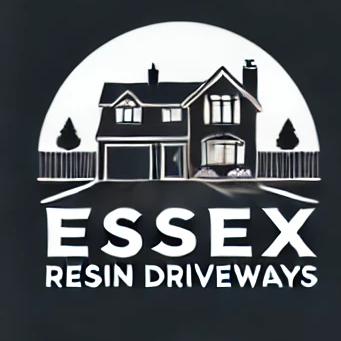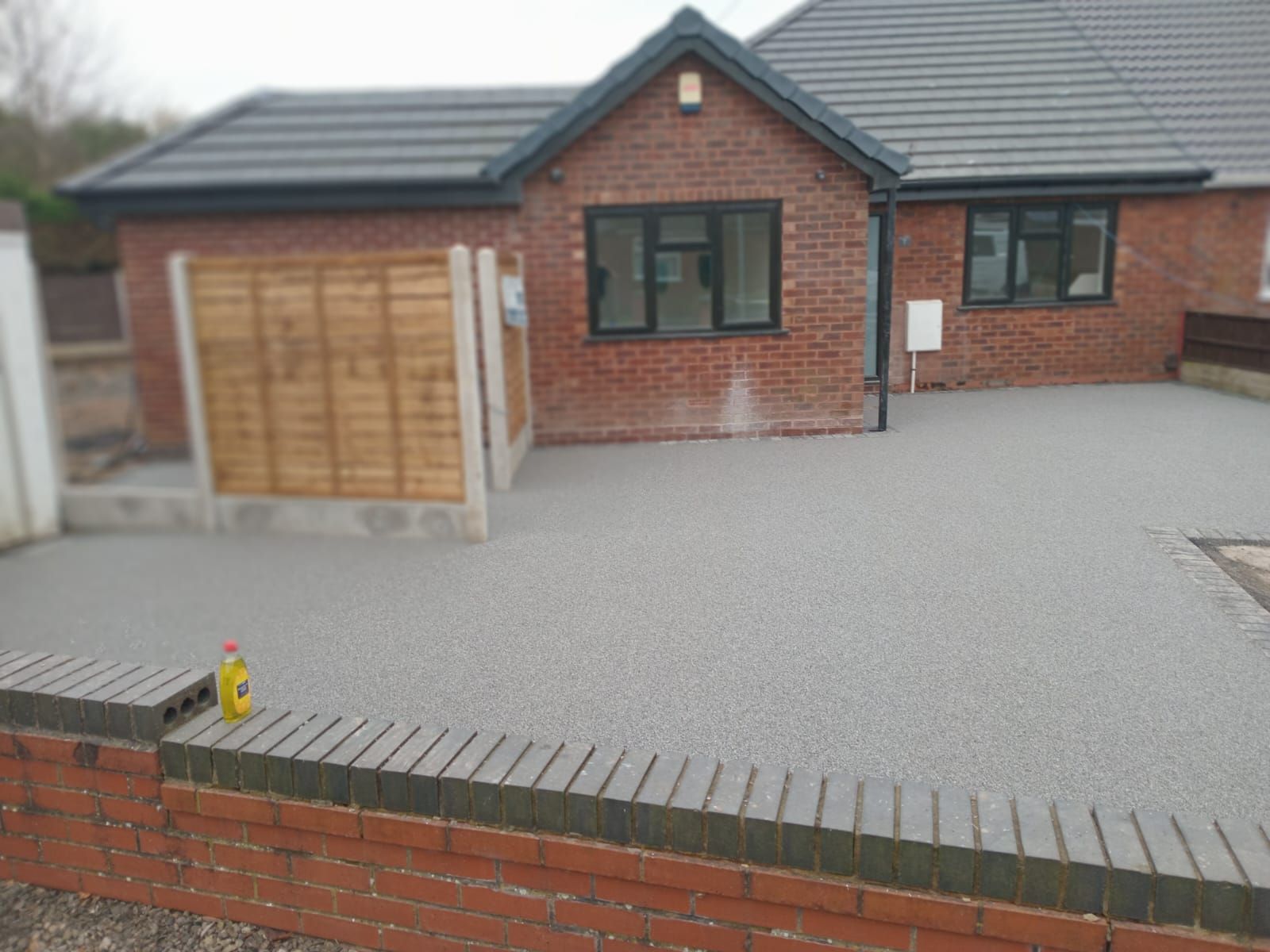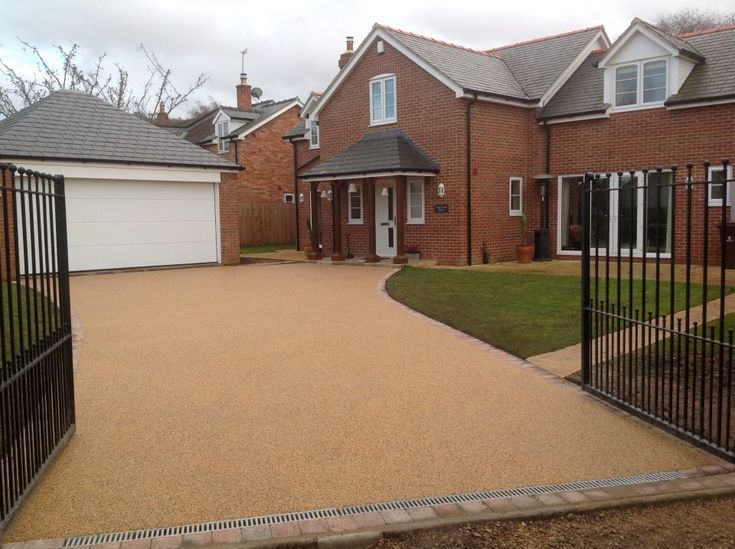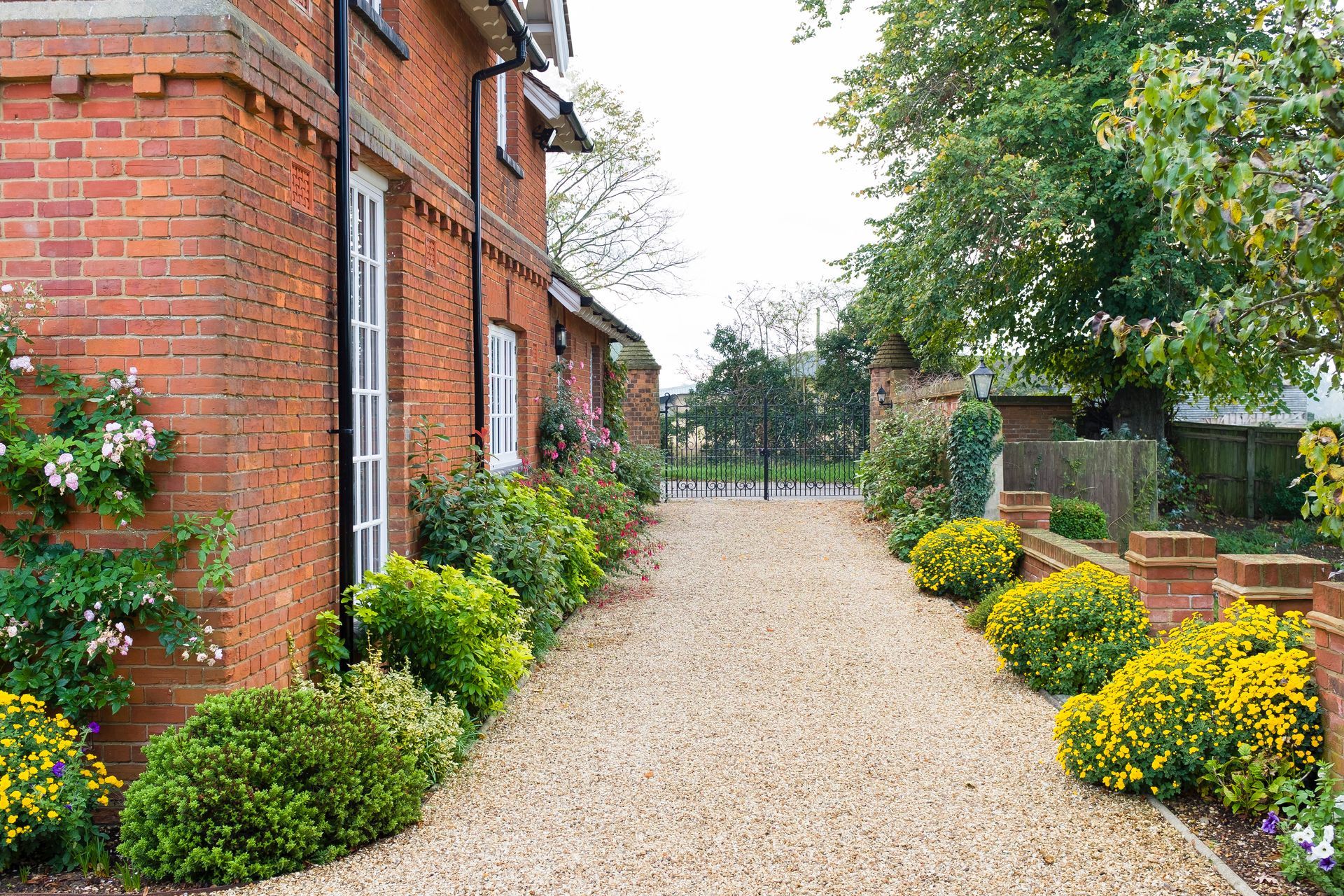Cost comparison resin driveways vs. block paving
Cost comparison resin driveways vs. block paving: Analyzing driveway options for homeowners in Essex
Choosing the right material for your driveway is a crucial decision that impacts both aesthetics and functionality. Resin driveways and block paving are two popular options, each with its own set of advantages and costs.
A typical resin driveway costs between £50 to £80 per square metre for materials, while block paving ranges from £80 to £110 per square metre installed. These figures provide a starting point for comparison, but the final price depends on various factors, including project size, site preparation, and chosen materials.
Understanding the cost differences between resin and block paving driveways can help homeowners make an informed decision. This comparison will examine the initial installation costs, long-term maintenance expenses, and overall value of each option to determine which may be more cost-effective for your specific needs.
Understanding Resin Driveways
Resin driveways offer a modern, durable solution for homeowners seeking an attractive and low-maintenance surface. These innovative driveways combine aesthetic appeal with practical benefits.
What Is Resin Bound?
Resin bound surfacing is a mixture of aggregates and clear resin. The materials are thoroughly combined and then troweled onto a prepared base. This creates a smooth, porous surface with a depth of 15-20mm.
Resin bound driveways allow water to drain through, making them SUDS compliant. This permeability helps prevent flooding and puddles.
The finished surface is solid and resistant to cracks. It can withstand heavy loads without breaking or shifting.
Advantages of Resin Driveways
Resin driveways offer several benefits:
- Durability: Resistant to weeds, stains, and UV rays
- Low maintenance: Easy to clean and requires minimal upkeep
- Versatility: Available in various colors and designs
- Permeability: Allows water drainage, reducing flood risk
- Smooth finish: Comfortable for walking and ideal for wheelchairs
With proper care, these driveways can last up to 25 years. Their seamless appearance enhances property aesthetics and potentially increases home value.
The Resin Driveway Installation Process
Installing a resin driveway involves several steps:
- Site preparation: Excavation and laying of a stable sub-base
- Edging: Installing borders to contain the resin mixture
- Priming: Applying a bonding agent to the sub-base
- Mixing: Combining aggregates with resin
- Laying: Troweling the mixture evenly across the prepared area
- Finishing: Smoothing the surface and allowing it to cure
For an average-sized driveway, the entire process typically takes two to three days. Weather conditions can affect curing time.
Professional installation ensures proper mixing ratios and application techniques, crucial for the driveway's longevity and performance.
Exploring Block Paving Driveways
Block paving driveways offer a classic look with many design possibilities. This traditional option provides durability and visual appeal for homeowners seeking a timeless driveway solution.
Characteristics of Block Paving
Block paving driveways consist of individual blocks or pavers laid in interlocking patterns. These blocks are typically made from concrete or clay and come in various sizes, shapes, and colors. Block paving is known for its strength and ability to withstand heavy loads, making it ideal for driveways.
The installation process involves laying a sub-base and adding a layer of sand before placing the blocks. This method allows for some flexibility and reduces the risk of cracking. Block paving also offers good drainage properties when installed correctly.
Maintenance of block paving driveways includes periodic cleaning and occasional resealing. If damaged, individual blocks can be replaced over time, which is a cost-effective repair option.
Design Options with Block Paving
Block paving provides extensive design flexibility, allowing homeowners to create unique patterns and styles. Common layout options include:
- Herringbone
- Basketweave
- Running bond
- Circular patterns
Colors range from traditional reds and grays to more modern hues like charcoal or buff. Mixing colors can create borders, focal points, or intricate designs within the driveway.
Textured blocks enhance grip and add visual interest. Some homeowners opt for a combination of smooth and textured blocks for a varied aesthetic.
Block paving can be used to complement the architectural style of a home, from classic brick designs for period properties to sleek, modern layouts for contemporary homes. This versatility makes block paving a popular choice for many homeowners.
Comparing Costs and Longevity
When choosing between resin driveways and block paving, cost and longevity are crucial factors. Both options have different price points and lifespans that can impact your decision.
Initial Investment
Resin driveways typically cost between £80-£140 per square meter. For a 60m2 driveway, this translates to £5,000-£6,500. This price includes excavation, a solid sub-base, and installation.
Block paving prices fall within a similar range. A 60m2 block-paved driveway costs approximately £5,000-£6,500.
The initial costs for both options are comparable. However, the choice of materials and design complexity can influence the final price.
Maintenance and Durability Over Time
Resin driveways are known for being low maintenance. They require occasional sweeping and power washing to maintain their appearance. Their smooth surface prevents weed growth and resists staining.
Block paving durability is high when installed correctly. However, it may need more frequent maintenance. Weeds can grow between blocks, and individual pavers may need replacement over time.
Resin driveways typically last 15-25 years with proper care. Block paving can last 20-30 years or more, depending on the quality of installation and maintenance.
Block paving may have higher long-term costs due to more frequent cleaning and potential repairs. However, resin driveways often prove more cost-effective in the long run due to their low maintenance requirements.
Assessing Aesthetics and Functionality
When comparing resin driveways and block paving, aesthetic appeal and practical functionality are crucial factors to consider. Both options offer unique visual and performance characteristics that can significantly impact your property's appearance and usability.
Surface Appearance and Customization
Resin bound pavement provides a smooth, seamless surface that can enhance a property's modern aesthetic. It offers a wide range of color options and patterns, allowing homeowners to create custom designs that complement their home's exterior. The uniform finish of resin driveways can make smaller spaces appear larger and more open.
Block paving, on the other hand, offers a more traditional look, with individual blocks creating texture and visual interest. It comes in various shapes, sizes, and colors, enabling intricate patterns and borders. This versatility allows for unique designs that can add character to a property.
Drainage and Environmental Considerations
Resin driveways excel in drainage capabilities. The porous nature of resin bound surfaces allows water to permeate through, reducing the risk of puddles and surface water runoff. This feature aligns with sustainable urban drainage system (SUDS) requirements, making it an environmentally friendly choice.
Block paving can also offer good drainage when installed with proper gaps between blocks. However, these gaps may accumulate debris over time, potentially reducing drainage efficiency. Some permeable block paving options are available, designed specifically to enhance water drainage and meet SUDS standards.
Both options contribute to improved water management, but resin driveways generally have an edge in this aspect due to their inherent permeability.
Conclusion: Which Driveway Suits You Best?
The choice between resin and block paving depends on your specific needs and preferences.
Resin driveways offer quick installation and a smooth, modern appearance. They're ideal for homeowners seeking a low-maintenance option with excellent slip resistance.
Block paving provides more design flexibility and can create intricate patterns. It's a durable choice that handles heavy traffic well.
Budget is a key factor. Block paving tends to be more expensive upfront but may offer better long-term value.
Consider your climate and usage. Resin performs well in various weather conditions, while block paving may require more upkeep.
Aesthetics matter too. Resin offers a seamless look, while block paving can complement traditional architecture.
Ultimately, both options have their merits. Assess your priorities - maintenance, cost, appearance, and longevity - to determine which driveway type aligns best with your needs.
Frequently Asked Questions
Resin and block paved driveways differ in long-term costs, durability, maintenance, installation, environmental impact, and aesthetics. These factors influence homeowners' decisions when choosing between the two options.
What are the long-term costs associated with resin driveways compared to block paving?
Resin driveways typically have lower long-term costs than block paving. Resin surfaces require minimal maintenance, reducing ongoing expenses.
Block paving often needs more frequent repairs and replacements, increasing costs over time.
Can you compare the durability of resin driveways to block paving options?
Resin driveways generally offer superior durability compared to block paving. They resist cracking, fading, and weed growth better than block paving.
Block paving can shift or settle over time, potentially leading to unevenness or loose blocks.
What maintenance requirements are there for resin driveways versus block paving?
Resin driveways require minimal maintenance. Regular sweeping and occasional power washing are usually sufficient.
Block paving needs more frequent attention, including weeding, re-sanding joints, and addressing displaced blocks.
How do the costs of installation for resin and block paved driveways differ?
Resin driveway installation costs can start from £80 per square meter for a simple overlay. More extensive preparation work can increase the price to £150 or more per square meter.
Block paving installation typically ranges from £80 to £110 per square meter.
In terms of environmental impact, how do resin driveways compare to block paved driveways?
Resin driveways are generally more environmentally friendly. They are promoted as permeable surfaces, allowing water to drain through and reducing surface runoff.
Block paving can also be permeable if specially designed, but standard options may contribute to water runoff issues.
What are the aesthetic differences between resin and block paved driveways?
Resin driveways offer a smooth, seamless appearance with various color options. They provide a modern, clean look.
Block paving presents a more traditional aesthetic with patterns and individual blocks. It allows for intricate designs and colour combinations.
For further information, Click here to visit our website or call Essex Resin Driveways on 01245-968085.
Click here to complete our contact form and see how we can help you with your Driveway requirements.
You might also like
Book a Service Today
We will get back to you as soon as possible
Please try again later
Location
Call
All Rights Reserved | Essex Resin Driveway | Powered by Snapps



